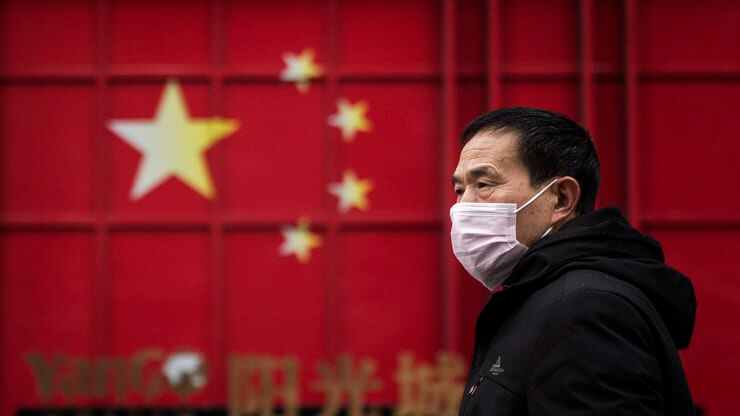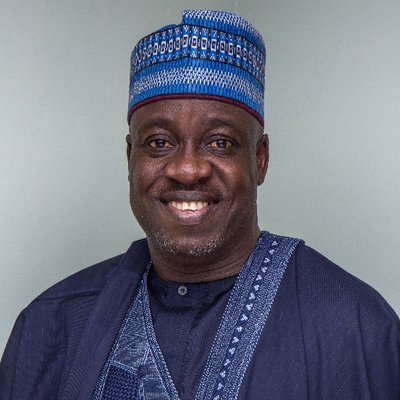The coronavirus outbreak is already changing the world

By Fredrick Kempe
Coronavirus will change the world. The “how” is growing clearer with each day of its global spread.
Unpredictable events produce unforeseen outcomes. Yet sift carefully through the deluge of reporting, and one can discern the first outlines of how this entrepreneurial pathogen will leave its mark.
Here’s just a short list of what we know already as the coronavirus has reached some 94 countries, with more than 100,000 cases and more that 3,400 deaths.
What we’re learning – in real-time, Darwinian fashion – is that proactive countries, societies and individuals are performing far better than reactive ones. Governments that engage in truth-telling are heading off dangers faster than those that obfuscate or delay. (More on that below.)
This week, we were also reminded of the benefits of international collaboration and trust – and the dangers where it doesn’t exist – both in addressing health emergencies and their global financial implications.
For her part, International Monetary Fund Managing Director Kristalina Georgieva, pointing to “more dire scenarios,” made available $50 billion to help countries deal with the virus, including $10 billion at zero interest for the poorest of nations.
Here’s a short (by no means complete) list of what should, or could be, other implications:
The United States and Europe should take this moment as a wake-up call to pay far more attention to addressing non-military national security threats, including their excessive dependence on China for crucial supply chains that reach from pharmaceuticals to “rare earth” materials used in almost all our high-tech gear. Today, about 80% of pharmaceuticals sold in the US are produced in China. China is also the largest and sometimes only global supplier for the active ingredient of some vital medications.
Chinese leaders will have to rapidly adjust their economy to the new reality in which global manufacturers will diversify supply chains, wherever they can, at the cost of Chinese workers. In a country where economic growth figures buy authoritarian leaders their credibility, this year’s slowdown and job losses could have far-reaching consequences.
Chinese leaders are already addressing these challenges through new economic stimulus programs, which are a good thing, but the temptation at the same time has been for more authoritarian controls and nationalist rallying, which is less good, particularly if you live in Hong Kong, Taiwan, or the region.
Iran, one of the four countries hit hardest by coronavirus, with more than 4,700 cases and 124 deaths, is lurching between measures to stop its spread among an increasingly distrustful population and steps it has taken to accelerate its uranium enrichment toward a nuclear weapon.
Iran could choose to rapidly reduce its costly, malign regional behavior, which neither its citizens nor its neighbors can afford. It could pull back from recent steps to increase its uranium enrichment in the direction of weapons grade materials. The alternative, which appears to be the course Iranian leaders have chosen, is an ultimately reckless and perhaps suicidal path of internal repression, ensuring hardline electoral outcomes and external aggression.
Coronavirus has made that path even less sustainable. Watch this space.
This column has tried to keep a healthy distance from U.S. domestic politics. And pathogens are nonpartisan. However, it’s hard not to reach conclusions, looking around the globe, that also reflect on the U.S. coronavirus response.
Countries that delay and dither in their initial responses (China, Italy) pay a heavy up-front price, and those that respond rapidly and responsibly can contain infection rates rapidly (Singapore, Taiwan, Hong Kong).
Italy and Hong Kong present a powerful comparison. Though Hong Kong shares a border with mainland China, it only this week passed the 100-case mark with two deaths, while Italy has had more than 4,600 cases and almost 200 deaths
Lay aside Italy’s higher population. The more decisive difference was Hong Kong’s proactivity. It closed its schools when Hong Kong had fewer than forty cases and will keep them closed until mid-April, at the earliest. Italy only this week announced a limited closure. Hong Kong also closed most public venues – restaurants, bars, sporting events and theaters. Italy’s response has been spottier, and thus its numbers have grown even as it exported the virus.
If you live in the United States, it’s hard to be reassured by the country’s relatively low number of cases and deaths – more than 340 and at least 14. That’s because of the serious lack of testing kit availability until now. Fewer than 500 people have been tested across the country (although the CDC has stopped reporting that number in its summary of the outbreak).Thus, the lag in identifying and treating cases means we won’t know where we are today until at least 16 days from now as increased “community transmission” is inevitable.
A final lesson in this incomplete list is that international leaders must better address our fragile global economy’s ability to absorb shocks like coronavirus, and that should start by addressing our record corporate and sovereign debt levels. Global debt is nearing $244 trillion, the highest level on record.
With most Western central banks near zero interest rates, monetary tools are insufficient to counteract coronavirus – as the Fed demonstrated through the ineffectiveness of its half point cut. Global debt levels restrain the far better alternative of fiscal stimulus.
Lesson here: if kind fate should allow us to slip by this coronavirus without a global pandemic, global recession, or financial meltdown, addressing this debt overhang should be a matter of global urgency.
Perhaps the most important lesson of the past weeks of coronavirus is that the recent rise of authoritarianism globally and the rise of populism and nationalism among Western-style democracies provide a poor recipe for sound, trusted, experienced management of an unfolding global health emergency.
No doubt the coronavirus scare has contributed to the Biden surge of the past week, as American voters in the Democratic party scanned the available choices for steadiness and experience – and other moderate candidates rallied around his flag.
So, the first returns are in regarding how the coronavirus episode might change the world. No doubt the virus is a curse, but it also could be a blessing if politicians and voters heed its lessons.
As Winston Churchill said on the cusp of World War II, “Never let a good crisis go to waste.”
*This opinion by Fredrick Kempe was first published by NBC on Saturday March 7, 2020. Frederick Kempe is a best-selling author, prize-winning journalist and president & CEO of the Atlantic Council, one of the United States’ most influential think tanks on global affairs. He worked at The Wall Street Journal for more than 25 years as a foreign correspondent, assistant managing editor and as the longest-serving editor of the paper’s European edition. His latest book – “Berlin 1961: Kennedy, Khrushchev, and the Most Dangerous Place on Earth” – was a New York Times best-seller and has been published in more than a dozen languages. Follow him on Twitter @FredKempe and subscribe here to Inflection Points, his look each Saturday at the past week’s top stories and trends.









